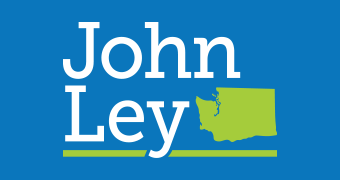In the latest 60 Seconds with John Ley video, John Ley urges the RTC Board to reconsider their approval of the Interstate Bridge Replacement (IBR) program’s Locally Preferred Alternative (LPA). Ley brings attention to the shocking cost of the proposed MAX light rail extension, which totals $2 billion for a mere 1.9 miles—equivalent to $1 billion per mile. This cost is more than five times the expense per mile of the 2015 TriMet Orange Line extension, which even included a new bridge over the Willamette River.
Ley also points out the inconsistencies in the number of light rail vehicles being requested. TriMet is demanding 19 new vehicles for the IBR’s 1.9-mile Yellow Line extension, compared to just four vehicles for a 10-mile Red Line extension project. This raises concerns about excessive spending, with vehicle prices inflated to as much as $15 million each—triple the cost of recent light rail vehicle purchases by TriMet.
Beyond the exorbitant costs, Ley argues that there is no current need for such high-capacity transit, particularly with the shift toward remote work and declining transit ridership. He further criticizes TriMet for requesting Washington taxpayers to fund the replacement of worn-out vehicles that serve areas beyond SW Washington, noting that TriMet has never contributed to replacing C-Tran buses. Ley also questions the request for $21 million annually for operations and maintenance of the MAX light rail extension, which is triple the current O&M costs.
In conclusion, John Ley urges the RTC Board to rescind their approval of the IBR’s Locally Preferred Alternative and protect the taxpayers of SW Washington from what he calls “the world’s most expensive light rail project.”
Transcript:
Good afternoon, John Ley, Clark County. Do you have an obligation to stop theft, graft, or corruption? Do you have an obligation to protect the taxpayers of Southwest Washington? I would hope the answer is yes. TriMet, through the Interstate Bridge Replacement Program, is demanding a $2 billion, 1.9-mile MAX light rail extension. That is $1 billion per mile. That is five times the cost per mile of the 2015 TriMet Orange Line.
The Orange Line included a new bridge over the Willamette River in Seattle. Sound Transit just opened their Lynnwood light rail extension. It cost $353 million per mile. TriMet and the IBR are proposing the world’s most expensive rail extension on a per-mile basis. That’s comparing high-speed rail, heavy rail, and light rail systems. Does anyone here think there’s a legitimate need for 19 new light rail vehicles for a 1.9-mile MAX Yellow Line extension? That’s ten vehicles per mile that TriMet is demanding the IBR buy for them. TriMet wants Washington taxpayers to replace worn-out vehicles to serve other parts of their light rail system. Has TriMet ever paid to replace worn-out C-Tran buses? No. TriMet is seeking between $190 million and $290 million to buy those new light rail vehicles.
That’s $10 to $15 million per vehicle. This is a huge rip-off when TriMet just paid $4.5 million each for four new vehicles for their ten-mile Better Red extension to Hillsboro. They paid $4 million each for 26 new vehicles ordered a decade ago. Clearly, TriMet wants to rip off taxpayers with grossly inflated prices for light rail vehicles. The IBR team apparently doesn’t care about being ripped off by TriMet.
Why do light rail trains cost $4.5 million each for the Better Red but between double and triple that amount when submitted to the IBR? Why were only four new vehicles needed for a ten-mile extension of the Better Red, but 19 are needed for a 1.9-mile extension of the Yellow Line? Additionally, TriMet is demanding new taxes from both Oregon and Washington to pay for their operations and maintenance of the MAX light rail extension.
They indicated they want about $21 million per year, triple their current light rail O&M costs. C-Tran wants eight zero-emission double-decker buses paid for by the IBR for their bus-on-shoulder service into Portland. These would carry up to 100 people. That’s ridiculous when we know there is a new normal of reduced transit ridership and more people working from home.
C-Tran carries less than a thousand people a day over the Columbia River on their express buses. There is no current need for any high-capacity transit over the river. I therefore ask the RTC board to rescind their approval of the IBR’s locally preferred alternative. Thank you.

